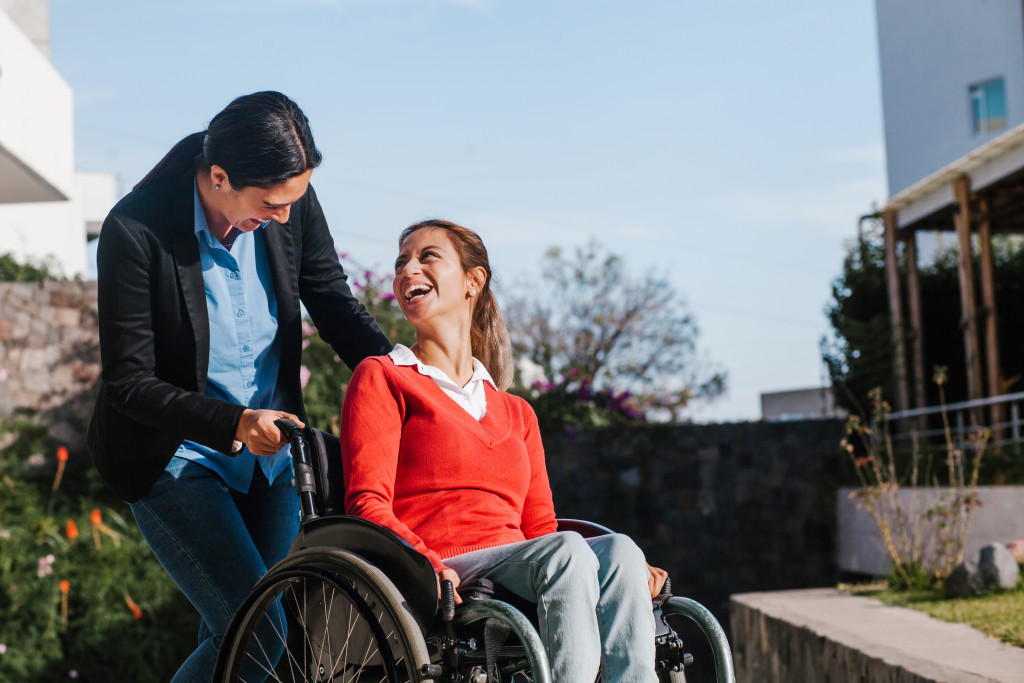- Foster a positive mindset so you can set goals and work towards achieving them.
- Manage your finances well, including understanding the various government benefits available to you.
- Seek out resources from organizations that support people with physical disabilities and assistive technologies.
- Build a support network by identifying your needs and finding the right support group.
- Be proactive in healthcare, and pursue your passions to enjoy life to the fullest.
Physical disabilities can present enormous challenges, leaving you powerless and overwhelmed. Tasks that might seem simple to able-bodied individuals can become insurmountable obstacles, and this can cause you to feel disconnected from your own life.
However, living with a physical disability does not mean resigning oneself to a life devoid of purpose or fulfillment. It is possible to take charge of one’s life, regardless of the challenges presented by physical disabilities. This post will explore some ways to empower oneself to take charge of one’s life with a physical disability.
Foster a positive mindset
A physical disability might have limitations, but a negative mindset can limit you even more. Believing in your own abilities and focusing on what you can do rather than what you cannot is key to empowering yourself.
A positive attitude enables you to set and work towards achieving goals. It is essential to acknowledge your limitations but focus on what you can do. This way, you can lead a fulfilling life despite your physical limits.
Manage your finances well

One of the most important things you can do to empower yourself is to manage your finances well. This means creating a budget and understanding the various government benefits available to you. For instance, in Australia, the National Disability Insurance Scheme (NDIS) provides access to a wide range of support and services. However, navigating the NDIS and its processes can be overwhelming.
Fortunately, trusted NDIS plan management services are available to help you manage your NDIS plan and ensure you get the most out of it. Through such services, you can gain more control over your budget and finances while still getting access to the support and services you need to lead a fulfilling life.
Seek out resources
Various resources are available to help individuals with physical disabilities, and taking full advantage of them is important. Look out for organizations that support people with physical disabilities, which can provide training, resources, and support groups that can help improve quality of life. Additionally, there are various assistive technologies designed to improve the lives of individuals with physical limitations.
Build a support network
There is nothing like having a support system of friends and family surrounding you. With the right support network, individuals with a physical disability can overcome these challenges and take charge of their lives. Here are the benefits of building a support network and some tips for creating one that works best for you.
1. Identify your needs
The first step is identifying your needs. What areas of your life do you require the most support in? Is it physical assistance? Emotional support? Financial resources? Identify your needs, and then start exploring potential support networks that can help you fulfill those needs.
2. Find the right support group
Finding the right support group is crucial for building a solid support network. Look for groups that cater to individuals with disabilities or that offer specific resources that meet your identified needs. You can also attend events and meetings hosted by local disability advocacy groups to meet potential support network members.
3. Reach out to family and friends

Don’t overlook the support from family and friends, as they can be powerful resources in your support network. Reach out to those in your immediate circle and let them know what types of support you are looking for. They may be able to provide emotional support or assist with tasks such as transportation or daily living activities.
4. Consider professional assistance
In some cases, professional assistance may be necessary to help build and manage your support network. This can include working with a social worker, case manager, or therapist to develop a plan and identify resources. Such professionals can also assist with coordinating supportive services from local government programs.
Final thoughts
Living with a physical disability comes with both challenges and opportunities. It is important to accept that certain things may be more challenging, but always look for ways to empower yourself to take charge of your life.
A positive mindset, seeking resources, creating a support network, being proactive in healthcare, and pursuing your passions all contribute to a fulfilling life. So, get out there and enjoy life to the fullest!






